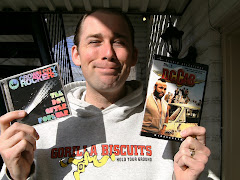
Hollywood loves them some ghetto school movies. Ever since Blackboard Jungle introduced white American moviegoers to rock ‘n’ roll and urban education, they haven’t been able to get enough of either. Films like Dangerous Minds, Stand and Deliver, and Up the Down Staircase have celebrated the struggle and triumphs of inner city teachers dealing with all that the roughest cities have to offer. Many of these movies are based on real-life teachers and while it’s great that praise has been given to these select few, there are so many other great teachers waiting for any form of extolment from the school system hierarchy. The same lack of attention that good teachers must deal with is the same force that allows subpar teachers to stay in classrooms.
Davis Guggenheim (An Inconvenient Truth) has known about the country’s failing public schools system for a while now. In 2001, he directed a film named The First Year which followed five teachers for one school year. Each of these teachers were new to the field and all found out, firsthand, just what kinds of hardships both educators and their students have to deal with. Almost a decade later, Guggenheim returns to subject of public education in an attempt to get at the root of whatever it was that was turning schools into “dropout factories” and leaving many students without viable options for their futures.
Instead of following five teachers, the director follows five students as they and their parents fight to get them the best public education possible. And they definitely have to fight because there’s a lot standing in their way, especially for students from lower-income neighborhoods. The film sheds a lot of light on issues such as teacher unions, tenure, and how money and geography limit educational opportunities for students. The five young subjects are vying for spots in charter schools, which receive government money but are allowed to function outside of the unions that leave bad teachers immune from being fired. These charter schools have been proven to raise test scores in mathematics, reading, science, and every other subject but what keeps students like Anthony, Bianca, Daisy, Emily, and Francisco in failing schools is a limited number of spots in each program.
While the students certainly give a face to the statistics, Guggenheim spends a great deal of time with the statistics themselves. Waiting for Superman traces the problems plaguing public education from the bottom to the top. And while it’s possible to learn a lot from Guggenheim’s film, the film misses its mark by labeling its Lex Luthor (the unions) too soon and displaying a one-sided argument without letting the alleged supervillains tell their sides of the story. Then the film plays the sympathy card by spending its last twenty minutes covering charter school lottos in which the five children, whose stories we’ve been following up to this point, are assigned random numbers and watch as bingo balls decide their fate. The film ends on a down note, an uninspiring note, in fact, which plays off of the titular metaphor (one of the film’s many unnecessary metaphors) where America’s children are still waiting for someone to save them. And if Guggenheim’s conclusion is accurate, Superman’s not coming. A solution for public schools still hasn’t been found and finding one looks just as hopeless as the schools themselves. The only hope seems to be that if enough people begin to demand change, then maybe, someday, someone will figure out how to get change.
Wednesday, January 27, 2010
Waiting for Superman (Sundance Review)
Subscribe to:
Post Comments (Atom)














2 comments:
The problem is with unions? Huh. I'll have to wait and see before delivering a verdict on this one, but personally I don't know how an argument could be made for that.
That's what the filmmaker was appearing to say. The main problems, he claims, is with the teachers getting tenure (which basically means they can do anything without getting fired) and the fact that teachers aren't allowed to be ranked. Under the union, all teachers are equal, even the awful ones. I don't know how true that holds up, but that's what the film had to say.
Post a Comment